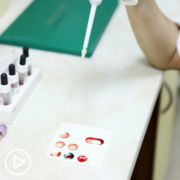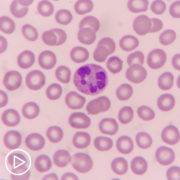How Does Artificial Intelligence (AI) Improve MPN Patient Care?
How Does Artificial Intelligence (AI) Improve MPN Patient Care? from Patient Empowerment Network on Vimeo.
Myeloproliferative neoplasm (MPN) patients can benefit from increased use of artificial intelligence (AI) in their care. Watch to learn about patient care improvements from AI, what it means for MPN patients, and potential future developments in AI.
See More From the MPN TelemEDucation Resource Center
Related Resources:

|

|

|
Transcript:
The use of artificial intelligence (AI) in telemedicine is ever expanding. In telemedicine visits, AI can provide translations for non-native English speakers, more efficient analysis of imaging and other tests, use algorithms to better predict staffing levels for improved patient care, and much more.
The increased use of artificial intelligence translates to improved care for MPN patients. Patient health can be monitored more frequently, more time can be spent with each patient, and tests can be evaluated more accurately through analysis by both providers and AI. These benefits will result in monitoring of treatment and symptoms more often for optimal patient care.
As artificial intelligence continues to evolve, patients are apt to see even more treatment advancements and personalized care. Quality of life should improve as MPN specialists can spend more time learning about the latest MPN treatment advancements and to focus more on patient health outcomes.
Please remember to ask your healthcare team what may be right for you.
















